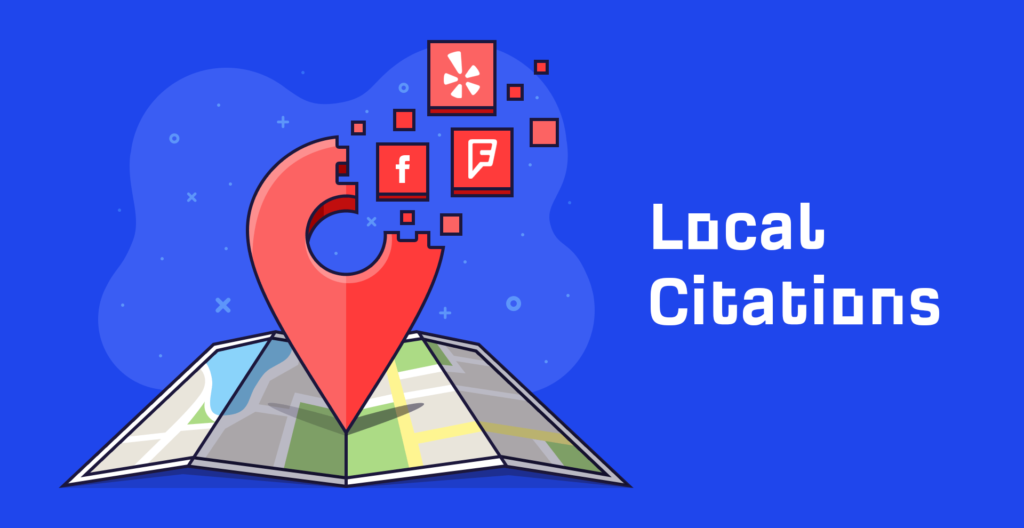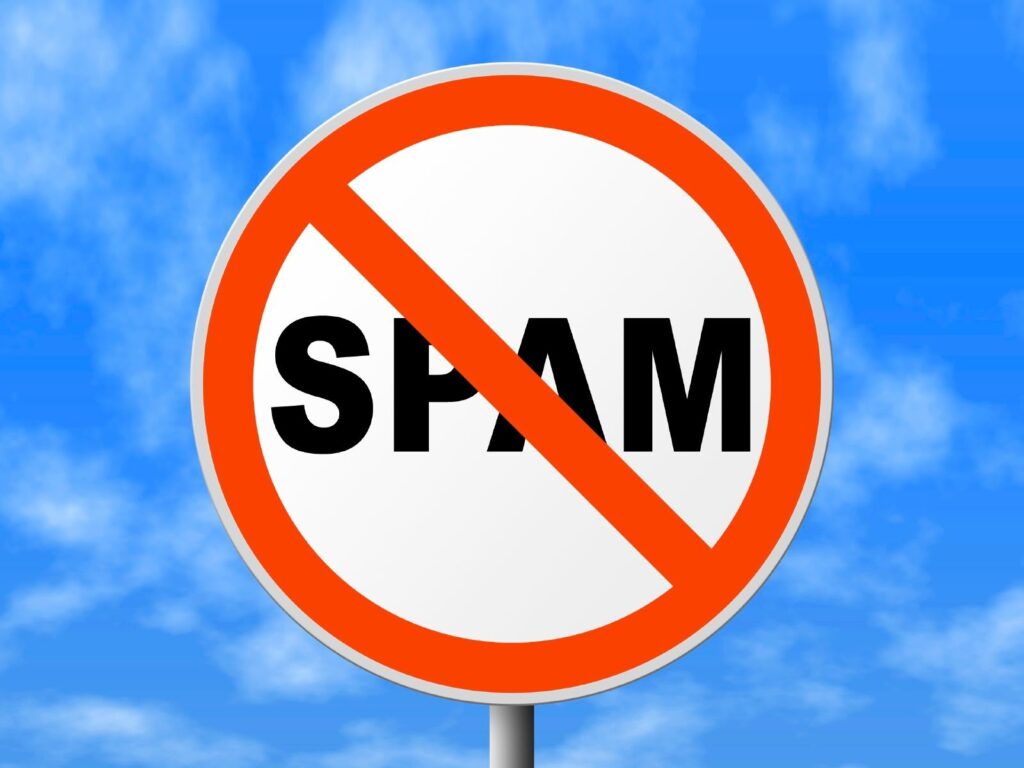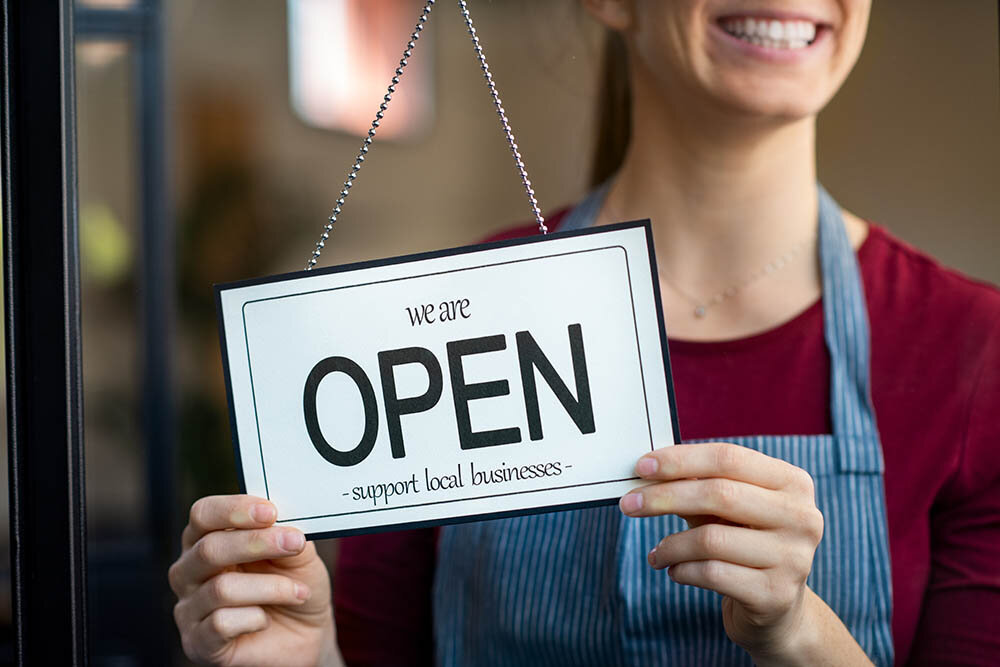How Important Are Citations In Local SEO?

Online competition is fierce, even between small businesses competing for customers across a small geographic region. It’s vital, therefore, that local firms use SEO to the fullest extent possible to attract customers and win sales. Citations are an essential ingredient in the struggle for search supremacy. Companies that have the most consistent and widespread citations tend to do better in search results and can gain far more organic traffic for their websites. It’s important to note that citations encompass more than just your business’s name, address and telephone number. Today, search engines consider a wide variety of parameters to be citations, including things like fax numbers, reviews, owner information, the type of business you operate, your geo-coordinates, business descriptions, images, videos, opening hours, accepted payments, and slogans. Ideally, you want all of these to be consistent across the web. Citation building makes it much easier for potential customers to find your business, and also present it as a reliable and trustworthy company. But if you’re neglecting this process, could you be hampering your local SEO potential? How important are citations in local SEO? Citations are online references to your business, particularly your brand name, address, and phone number—known collectively as your NAP. These details are important because they act as a unique marker that solidifies your identity and helps Google separate you from all the other businesses listed online. Your NAP also demonstrates your physical presence in a particular geographical area, which is required if you’re going to appear in local search results. Generally, the more citations you have the better. For instance, a local business with lots of online mentions is more likely to rank higher than one that’s receiving little attention. Having the same NAPs across multiple locations also help to establish reliability, as this consistency effectively verifies these contact details. For example, if you’re listed by both a local blog and an online newspaper for that area, this suggests your business is part of a local community. What’s the best way to build citations? Best practice citation building for local SEO is about quality as much as quantity. Yes, acquiring lots of listings are good, and business websites ranking in their local top 10 have an average of 75-86 citations—but those on high-authority and relevant web pages are the ones that will have the biggest impact on your ranking. For that reason, it’s worth exploring other possible sources such as blogs, forums, and press releases, or trying to replicate some of the places your main competitors have managed to get listed. How effective are citations in boosting local SEO? Citations are incredibly important in gaining trust from Google, and without this trust, it’s unlikely you’ll rank particularly well. They also help boost your visibility in local search, and if Google sees that you’re getting more attention than one of your competitors, you’ll probably beat them in SERPs. They are also believed to add more value to businesses which aren’t yet appearing in Google’s local business pack. However, their wider importance has somewhat diminished in recent years, and citations are now typically considered to be a foundational tactic as opposed to the be-all and end-all of local SEO. Improving local SEO To really move the needle, acquiring local citations should only be a small part of a wider local SEO strategy. Other important components include localised link building, gathering online user reviews and ratings and content optimisation. It’s also a good idea to expand your keyword research strategy to encompass more location-specific terms and phrases. This, of course, doesn’t mean neglecting the use of citations altogether. The presence and reliability they give your business make them far too important to be ignored. However, to really see a difference in your rankings, devising an all-encompassing strategy that strengthens all elements of local SEO is the best way for your website to make an impact. Does your business need local SEO and citation support? If so, get in touch with Direct Submit today by calling 0800 669 6848 or visit our Digital Marketing website and find out more about our incredible services.
Google Cracking Down on Renegade Linking Practices

Google webspam report: Cracking down on renegade linking practices, auto-generated content. “More than 25 billion pages we discover each day are spammy,” the company revealed. Google discovers more than 25 billion spammy pages a day, according to its annual webspam report released Tuesday. The company also published a companion post on why it’s important to keep spam out of search results. The definition of spam. “We define ‘spam’ as using techniques that attempt to mimic [high quality content] signals without actually delivering on the promise of high-quality content, or other tactics that might prove harmful to searchers,” the post reads. A more comprehensive list of spammy behaviors can be found on Google’s Webmaster Guidelines. How Google stops spam. In the majority of cases, Google automatically identifies spammy behavior and ensures that those pages don’t rank well in search results. The company also uses human analysts to determine if content or sites are spammy. The human review process often leads to improved automated systems. “We look to understand how that spam got past our systems and then work to improve our detection, so that we catch the particular case and automatically detect many other similar cases overall,” the post reads. Spammy content is often demoted or removed completely from the search results. Google may also give site owners the opportunity to resolve issues by sending them manual actions via Google Search Console. Below are some figures that the company emphasised in its webspam report: > Google says its efforts ensure that more than 99% of visits from its results lead to spam-free experiences. > Paid links and link exchanges have been made less effective, with Google catching more than 90% of link spam. > In 2018, it reduced user-generated spam (spam accounts on forums, blogs, and other platforms, as well as the posts they create) by 80%; “this type of abuse did not grow in 2019,” the company said. > The impact of spammy sites (those that feature auto-generated or scraped content) on search users has been reduced by more than 60% compared to 2018. > Google received nearly 230,000 search spam reports in 2019 and was able to take action on 82% of them. > The company generated over 90 million messages to site owners about issues that may affect their site’s appearance in search results as well as potential improvements. > Roughly 4.3 million messages were sent regarding manual actions resulting from Webmaster Guidelines violations.
How Long Does SEO Take?

You’ve most likely spent a lot of money on getting a website that ‘sells’ your products/services, but what good is it going to do your business if people don’t see it? But how long does a project take? While there are no definitive answers as each project is different, as a guide, there are a few factors to consider when trying to gauge how long an SEO campaign will take, such as: How new your site is Sites that are brand new often have a “sandbox” period where they will not see good rankings for months. For the sake of SEO, it is best to launch your site as quickly as possible with some content, even if you are still adding pages and filling out the site. How competitive your niche is The more competitive your niche and the more competitive your keywords are, the longer it usually takes to rank for terms. Why you don’t have rankings now If your site is poorly optimised or has technical issues, fixing those things could result in huge improvements within a few weeks or less. Likewise, if your site is lacking content, adding more keyword-rich content could also boost ranking significantly or at least put you into the search results if you weren’t there before. Website authority and relevance However, if your site isn’t ranking due to lack of authority or lack of relevance, it can take much longer to rank your site, since building authority and relevance can take quite a while. Generally speaking, we recommend sticking with an SEO campaign for at least 6 months, which should be enough time to see significant improvement for most niches. However, usually, it is possible to see at least some results within 2-3 months, especially if you are not ranking due to technical issues and/or poor optimization – both of which can usually be fixed within the first month or two, depending on the size of the site and the depth of the issues. Whether you are a small local business or a large company, being seen online can now be crucial to ensuring business success. But as more businesses move online, your website can easily get lost in the thousands of millions of results – but only if you don’t have the right help. At Direct Submit, we believe every company is unique and we deliver a specific range of SEO services designed to help ensure the optimum performance of your website. With over 15 years of experience our goal is to increase the visibility & exposure of your business simply by generating more organic traffic to your Website.
Google Explains Content Pruning Best Practices

Google’s John Mueller on how to identify pages to block. Then he explains why some low traffic pages are okay. In a Google Webmaster Hangout, Google’s John Mueller answered which low traffic pages to noindex and which ones to not worry about. Are Low Traffic Pages Harmful? It’s generally understood that it’s a good idea to remove low performing pages. Low-quality pages tend to attract low amounts of traffic and should be either no-indexed or removed entirely. That is what the question John Mueller answered is about. The question is specifically about a news site but Mueller’s answer widens to be useful to more than just news sites. This was the question: We’re publishing news and articles. For example, we have 100 new articles every day and ten of them give us 95% of the organic search traffic. Another 90 go nowhere. We’re afraid that Google can decide our website is interesting only for 10%. There’s an idea to hide some boring local news under noindex tag to make the overall quality of all publishing content better. What do you think? Google’s Mueller first discusses how Google’s algorithm reviews web pages and the entire site in order to understand what the quality level is. His answer was on a general level, meaning that it’s applicable regardless if it’s a news site or any other kind of site. This is what Mueller said: “In general, we do look at the content on a per page basis. And we also try to understand the site on an overall basis, to understand how well is this site working, is this something that users appreciate. If everything is essentially working the way that it shout be working. So it’s not completely out of the question to think about all of your content and think about what you really want to have indexed”. Now Mueller focuses on news sites. He states that traffic isn’t necessarily the metric to use for judging whether a news web page is low quality. But especially with a news website, it seems pretty normal that you’d have a lot of articles that are interesting for a short period of time, which are perhaps more of a snapshot from a day to day basis for a local area. And it’s kind of normal that they don’t become big, popular stories on your website. So from that point of view, I wouldn’t necessarily call those articles low-quality articles, for example. So, just because a news article isn’t popular doesn’t mean it’s low quality. John Mueller then advises on how to know when content is truly low quality. He highlights issues such as content that is hard to read, broken English, and content that is poorly structured. Then he says what to do if you have a mix of good and poor quality content. On the other hand, if you’re publishing articles from … hundreds of different authors and they’re from varying quality and some of them are really bad, they’re kind of hard to read, they’re structured in a bad way, their English is broken. And some of them are really high-quality pieces of art, almost that you’re providing. Then creating that kind of a mix on a website makes it really hard for Google and for users to understand that actually you do have a lot of gems on your website… So that’s the situation where I would go in and say, we need to provide some kind of quality filtering, or some kind of quality bar ahead of time, so that users and Google can recognize, this is really what I want to be known for. And these are all things, maybe user-submitted content, that is something we’re publishing because we’re working with these people, but it’s not what we want to be known for. Then that’s the situation where you might say, maybe I’ll put noindex on these, or maybe I’ll initially put noindex on these until I see that actually they’re doing really well. So for that, I would see it making sense that you provide some kind of quality filtering. But if it’s a news website, where… by definition, you have a variety of different articles, they’re all well-written, they’re reasonable, just the topics aren’t that interesting for the long run, that’s kind of normal. That’s not something where I’d say you need to block that from being indexed. Because it’s not low-quality content. It’s just less popular content.
All About Domain Authority

Firstly what is the term “Domain authority” and how important is it really? This term was created by Moz as they believed it to be behind how a website performs on the search engines. You all must have heard about Alexa and Google Page Rank but do you know how important they really are? Moz mentioned the use of Domain authority when comparing two sites against each other. They mentioned about calculating the strength of the Domain authority by a combination of link metrics such as number of total links, MozRank, MozTrust, linking root domains etc. They will then come up with a score. All in all, what Moz created was a combination of different factors which graded the domain in terms of authority and strength. Now no one knows if this is really correct or not but we would not advise to completely rely on such software as no one can predict how Google’s Algorithm works. How can a website determine all their internal SEO efforts via just software? The rating scales up to 100 and higher you want to go, the tougher it gets in terms of competition. The following are examples of high domain authority sites: Facebook has 100, Google is 100, etc Now you must be eager to know how you can increase your domain authority. Firstly let’s talk about where you can check about your domain authority and learn more about the principles and basics of SEO. According to Moz who developed this software, you can use Open site explorer or the MozBar which is a free SEO toolbar specifically developed to monitor the domain authority score. You can also checkout Moz’s beginner’s guide to SEO which provides a complete guide into Search engine optimization for all the new webmasters out there. How to increase Domain Authority of your site? As we have learnt that there are a various factors involved in calculating the domain authority score therefore it is difficult to increase your score based on just a few methods. For just this reason alone, it is very important to focus on the long term progression and the content on your site. Content is King remember! By adding content you will be adding value to your site, your target market will want to read what you talk about and relate to it for example, a professional plumber might blog about how to clear pipes during winter, this is value to the reader who wants to know this can be done. Also providing a solution via your content will bring you many readers too. Below are some tips and tricks on how to improve your domain authority score Get working on the Social Networks It does seem like the social networks are increasingly getting crucial in the way which they assist the search engines to rank websites and blogs. We all by now understand the part Facebook and twitter have played in relaying information and web content to the mass audience globally. Thanks to the social network it has become easier to engage with your audience than ever before. Quality Content on the website As an avid blogger I understand the importance of the content in the SEO world. If you do not have valuable fresh content then the chances of your site ranking at the top is very little. Just browse through all the top websites out there right now and you will notice that all have great quality content on them. When there is constant supply of fresh, unique content on your site then spiders will want to crawl your site often and you will notice your site getting indexed much quicker too. Through the help of content, one can create a successful brand name too. We all love content that is catered towards us and aims at providing some sort of solutions to the problems we have. Now with social networks it is even easier to share this content easily across various platforms with just a click of a button. If you can write well then you will get to the top pretty quickly and get the deserved exposure for the quality of content you write. Natural Link Building You can have amazing content on your site but you will still need juicy backlinks to keep the traffic flowing and the search engines happy with you. The positive news is that you do not require a lot of trashy low-quality links as they will not enhance your site in any way or form. You should focus more on the best way to build links naturally. Once again if you have quality content on your site, then naturally people will want to link to it. Do not purchase links in a bid to get your ranking to the top as this is bad SEO practice. Avoid companies that offer automated link building as that too is very bad for your site and can result in a penalty too. So there you go, we have broken down what Domain Authority is and how you can enhance the Domain authority of your site by following the few tips we have outlined above. The main advice to all is to understand the importance of having quality content and backlinks on the website. We suggest in creating a long term goal and strategy to follow day in and day out. With time your domain authority will increase and along with it the traffic to your site too! When planning any great SEO campaign, domain authority is one of those terms that crops up time and time again. This is well known to seasoned SEO experts but, for everyone else, just what is domain authority. More importantly, how can it be used to your advantage? Developed by Moz, domain authority is a number – ranging from 1 to 100 – to determine the ‘strength’ and visibility of a website. The higher the number, the stronger the website is. A bigger number indicates better visibility on search engines.
Google Comments on Bad Links and 50% Traffic Loss

A post in the Search Engine Journal discussed Google’s John Mueller comments on the Googles comments on bad links, plus the correlation between bad referral links and a drop in traffic. A publisher told Google’s John Mueller that Google Search Console (GSC) reported over five hundred referring pages from two domains. These referrals correlated with a 50% traffic drop. Google’s John Mueller commented on the correlation between referral links and a drop in traffic. The publisher related that GSC showed referrals from two domains totaling up to four links to each page of their site. When visiting those pages the publisher saw that they were empty, there was no content on those pages. They stated that the appearance of those referring links correlated to a 50% drop in traffic. The publisher asked: “…is this a scenario where the disavow tool makes sense or does Google detect them as unnatural and will ignore them as a ranking signal?” Google’s John Mueller commented on the mystery of the “empty” pages and what those might be: “It’s really hard to say what you’re seeing here. It’s certainly possible there are pages out there that show an empty page to users and then they show a full page to Googlebot.” That is a reference to a page that is showing one page to Google and another page to everyone else. This practice is called cloaking. Mueller is explaining that the possibility that the page might be cloaking. This is an explanation of what the publisher might be seeing and not addressing the second issue of the rankings. Mueller goes on to dismiss the referral pages as technical mistakes rather than a malicious attempt to sabotage the publisher’s rankings. He said: “From that point of view, I would just ignore those pages.” He then suggested inspecting the pages with Google’s Mobile Friendly test to see what the page looks like when GoogleBot sees them. That’s a test for cloaking, to see if a page is showing one page to Google and another page to non-Googlebot visitors. Mueller then commented on the correlation between the referral links and the 50% drop in traffic: “I don’t think this is something that you need to disavow. It probably looks weird in the links report but I really wouldn’t worry about this. With regards to the drop in traffic that you’re seeing, from my point of view that would probably be unrelated to these links. There’s no real situation… where I could imagine that essentially empty pages would be causing an issue with regards to links. So I would just ignore that. If you decide to put them in the disavow file anyway… just keep in mind that this would not affect how we show the data in search console. So the links report would continue to show those. I don’t think there’s any reason to use a disavow file in this particular case. So I would just leave them be.” What Did the Publisher See? What the publisher saw is an old and common phenomenon called referral spam. The original reason for referral spam was that in the early 2000’s certain free analytics programs published lists of referrers in the form of links. That created the opportunity for spamming a site with fake referrals from the spam site to another site in order to create a link from the public analytics page. This analytics page was not linked from any other page of a site. It simply existed at an automatically generated URL. Most sites no longer have those analytics pages. But the practice continues, perhaps in the hopes that if enough publishers click on the links that Google will see it as a form of popularity that would help their rankings. What the publisher in this hangout probably was looking at was a manufactured referral. The referrer was not real. Even the link did not exist. This is typically the case in referrer spam. Does Referrer Spam Hurt Rankings? In twenty years of creating websites, I have never published a site that did not attract referrer spam. Referrer spam and the ghost links to my sites have had no effect on my rankings. Referrer spam is very common. It’s really a non-issue. The reason why the publisher’s site lost fifty percent of their rankings lies in another explanation.
Local SEO: Helping your Business

Local SEO is an effective online marketing tool. It basically showcases your website in search results to customers located near you at the exact moment when they need your services. Local SEO marketing is quite different from regular SEO marketing because local search results change very rapidly. Studies show that 97% of consumers now go online to find local services, with 82% of smartphone users use a search engine when looking for a local business or service. Google has been placing a lot of emphasis on local search lists, as much as possible it tries to show local search results for shops, restaurants, doctors, hotels, construction companies, movers and packers and other such businesses. Google Maps often appear in local searches and it’s important that your business appears in such results. If you need an experienced local SEO agency then Direct Submit is the right choice for you. How does Local SEO help? Local SEO marketing helps your business in the following manner: It helps you reach local customers who are most likely to buy from you – Customers searching for products and services in their neighbourhood are mostly looking to buy something. They want to buy from a nearby store or visit a specialist nearby and would always prefer a local store or service than one situated far away. This is why they searched in the first place. Hence such prospects have the highest potential to convert to customers who would remain loyal for years to come. If they are happy with your product offerings, not only would they buy it themselves but also recommend it to their neighbours and friends thus increasing your chances of getting even more local customers. We all know how ‘word of mouth’ is still the most effective way to get business. It helps you engage with local customers online and get customer reviews – Local SEO services helps you reach out to customers in more meaningful ways. You can interact with them on a daily basis with social media or timely offers through emailers and ads. In return, these customers may put out reviews of your service online which not only attracts more customers but also leads to better search rankings and quality score. Direct Submit has a strong team of local SEO experts. We can help your business achieve better results and higher ROI with local SEO. Our team of SEO experts will create a bespoke results-driven strategy to improve your SEO and help to boost your conversions. Ultimately, our SEO services are designed to drive qualified website traffic and leads to your business. Contact us now on 0845 2722350 or visit our website for more details. How do NAP Submissions Help Promote Your Business
SEO Services to Grow Your Business

Our SEO Services can help your business grow by focusing on three key areas: Higher Search Engine Rankings Our company has designed a search engine optimisation service that is both ethical and result-driven. We use the latest tools, strategies, and trends to help you move up in the search engines for the right keywords to get noticed by the right audience. Quality Website Traffic Higher search rankings for the right keywords can have a huge impact on the amount of traffic and quality of traffic that your website receives. Millions of consumers use Google on a daily basis to search for the products and services they have a need for. When relevant searches for your business are made, our goal is that the search includes your company’s website. Measurable Results Transparency in deliverables and results from your SEO campaign comes without question. Our SEO company provides SEO reports on a monthly basis that break down the detailed data regarding the success of your campaign in a clean and clear manner. Information such as increased search engine positions, traffic, sources, leads sources, custom goals, and much more come standard. A Proven SEO Process – Consisting of 5 Phases Phase 1: Business Evaluation & Site Analysis Become familiar with your business, your target audience and your goals. Then we analyse the current site’s content, mapping, code, and keyword density to discover site weaknesses & strengths. Phase 2: Strategy & Goal Development Develop a customised plan to take your current site and transform it into a site that begins to rank above your competition and higher for the keywords your target audience uses the most. Phase 3: Setup Implementation of SEO technical prerequisites such as tools, dashboards, and analytic systems so we don’t miss an inch of your optimisation success. Phase 4: Optimisation Execution Execution of on-site and on-page optimisation strategies that consist of cleaning up your site’s code, content, architecture, mapping, keyword usage and much more. Phase 5: Ongoing Optimisation Provide continuous on-page optimisation, blogging, link-building, consultation, and strategy to ensure lasting success for your company. We offer affordable SEO, Web Design, Pay per Click and Specialist Local Business SEO Services & we take pride in the fact our service delivers the best result. Regardless of the project, we offer unique client focused SEO Marketing Strategy designed around the clients individual needs. So if you want to employ SEO Services to grow your business and become a leader in your industry, with offices in both Durham and Newcastle, we can help you do just that through Digital Marketing and Search Engine Optimisation (SEO). Call us today on 0845 2722350 for more information about how we can make your website work harder for you.
